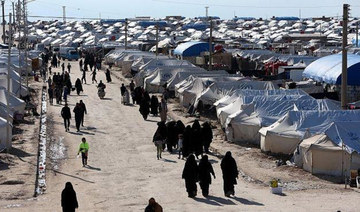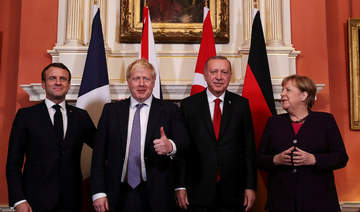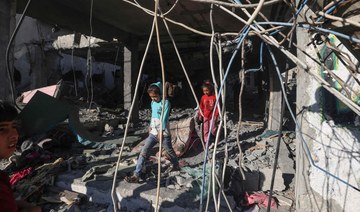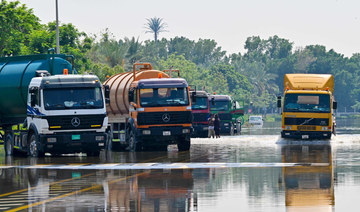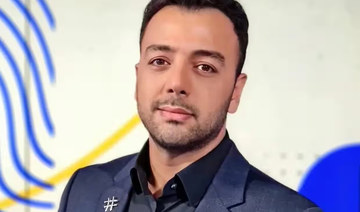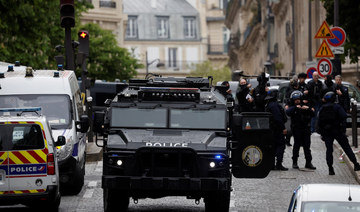UNITED NATIONS: UN experts say the interference of Chadian and Sudanese fighters in Libya is “a direct threat” to the security and stability of the war-torn country, which a leader of the Daesh extremist group has declared “one of the main axes” of its future operations.
The panel of experts said in a 376-page report to the UN Security Council released Tuesday that the presence of the Chadians and Sudanese “has become more marked” in 2019 as a result of the intensification of the conflict in Libya. It said their continued presence as organized groups or as mercenaries “may lead to further instability.”
Libya has been in turmoil since a civil war in 2011 toppled Muammar Qaddafi, who was later killed. In the chaos that followed, the country was divided, with a weak UN-supported administration in Tripoli overseeing the country’s west and a rival government in the east aligned with the Libyan National Army led by Gen. Khalifa Haftar, each supported by an array of militias and foreign governments.
Haftar launched a surprise military offensive April 4 aimed at capturing Tripoli despite commitments to attend a national conference weeks later aimed at forming a united government and moving toward elections. Fighting for Tripoli has stalled in recent months, with both sides dug in and shelling one another along the city’s southern reaches with increasingly sophisticated weapons.
While the LNA and the eastern government enjoy the support of France, Russia, Jordan, the United Arab Emirates and other key Arab countries, the Tripoli-based government is backed by Italy, Turkey and Qatar.
“Jordan, Turkey and the United Arab Emirates routinely and sometimes blatantly supplied weapons, with little effort to disguise the source” in violation of a UN arms embargo, the report said.
The experts identified multiple cases of non-compliance with the arms embargo, the majority of transfers to Haftar’s LNA from Jordan or the United Arab Emirates and the majority to the Tripoli government from Turkey.
But, the panel said, “Neither side has the military capability to effectively decide the outcome to their advantage.”
The experts said counter-terrorism operations in Libya against Daesh and Al-Qaeda extremists by the government and Haftar’s forces, and an increase in activity by the United States Africa Command, continue to disrupt the structure of both groups and temporarily reduce their capacity to conduct operations.
But the panel also reported the new focus on Libya by Daesh, also known as ISIL, quoting a video in July by a Daesh leader in Libya, Mahmud Massud Al-Baraassi, also known as Abu Musab Allibi. In the video, the report said, “he highlighted that Libya was now one of the main axes of future ISIL operations, which are designed to compensate for the loss of ground” in Syria.
“ISIL in Libya finances its activities through robbery, kidnap for ransom, extortion of Libyan citizens and the cross-border smuggling of artifacts and other commodities,” the panel said. “Taxation of human trafficking networks continues to be a source of funding for ISIL in Libya.”
As for foreign fighters, the experts named five Sudanese armed groups operating in Libya — four in support of Haftar’s LNA and one backing the government’s forces. They named four Chadian armed groups — one supporting the LNA, two supporting the government, and one with 100 fighters whose factions support both side.
In one example, the panel estimated 1,000 Sudanese troops from Sudan’s Rapid Support Forces were deployed to Libya on July 25 by Gen. Mohamed Hamdan Dagalo, initially to guard critical infrastructure so Haftar’s troops could carry out offensive operations.
The panel said Sudan and Dagalo, who has command responsibility, both violated UN sanctions.
The Associated Press reported last week that Libyan government officials plan to confront Moscow over the alleged deployment of Russian mercenaries fighting alongside Haftar’s LNA. US officials also accuse Russia of deploying fighters through a private security contractor to key battleground areas in Libya in the past months.
The UN panel of experts, who monitor sanctions against Libya, made no mention of Russian mercenaries in the report. Several diplomats said they expect the Russian mercenary issue to be raised in the Security Council.
UN experts: Libya is new focus of Daesh extremists
https://arab.news/ng6np
UN experts: Libya is new focus of Daesh extremists

- The country is considered by Daesh as “one of the main axes” of its future operations
Palestinians to reconsider US ties after veto of bid for full UN membership, Abbas says
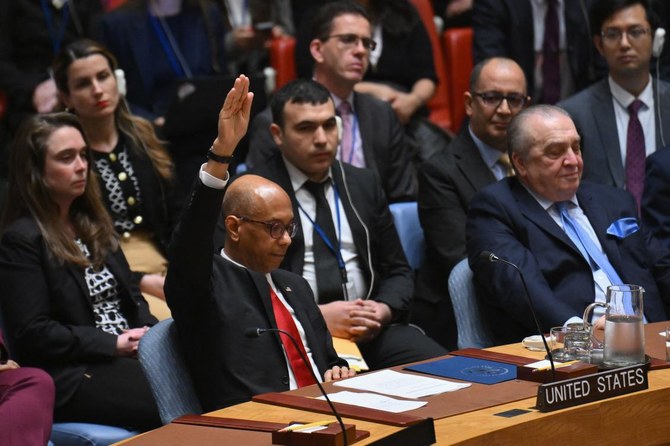
CAIRO: The Palestinian Authority will reconsider bilateral relations with the US after Washington vetoed a Palestinian request for full United Nations membership, President Mahmoud Abbas said in an interview with the official WAFA news agency.
Israel says its forces kill 10 militants in West Bank raid

- “Security forces eliminated 10 terrorists during encounters” over more than 40 hours, the army said
- Eight soldiers and a police officer had been injured in the raid
TULKARM, Palestinian Territories: The Israeli army said Saturday that its security forces killed 10 militants in an ongoing raid around Nur Shams, a refugee camp in the north of the occupied West Bank.
“Security forces eliminated 10 terrorists during encounters” over more than 40 hours, the army said in a statement.
The army said eight soldiers and a police officer had been injured in the raid.
An AFP journalist in nearby Tulkarem heard gunshots and blasts coming from Nur Shams on Saturday.
Residents contacted by AFP said there was a power outage and food was running short in the camp, saying nobody was allowed to enter or leave.
Since early last year violence has flared across the West Bank, which Israel has occupied since 1967. The violence has further escalated since the war in Gaza broke out on October 7.
Israeli forces say their frequent raids in the West Bank target Palestinian militants, but civilians are often among the dead.
Around 480 Palestinians have been killed by Israeli troops or settlers in the West Bank since the Hamas assault on Israel triggered the Gaza war, according to Palestinian official sources.
Emirates and flydubai resume normal operations after Dubai floods
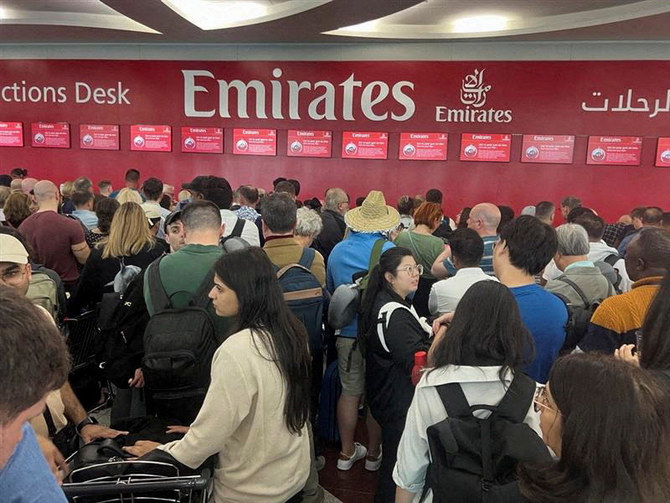
- Emirates canceled nearly 400 flights and delayed many more as a result of a record storm that hit the desert city of Dubai
RIYADH: Dubai’s flagship carrier Emirates and sister airline flydubai have restored normal operations after heavy rains caused severe flooding across the United Arab Emirates earlier this week, the airlines said on Saturday.
Emirates canceled nearly 400 flights and delayed many more as a result of a record storm that hit the desert city of Dubai on Tuesday, said a statement released by the airline’s president, Tim Clark.
Due to the impact of the storm, the airline suspended check-in for passengers departing from Dubai and halted its transit operations through Dubai International Airport, a major global travel hub, leaving thousands of travelers stranded.
The airport has struggled to return to normal operations after the storm flooded taxiways, forcing flight diversions, delays and cancelations.
Flydubai also returned to its full flight schedule from the airport’s Terminal 2 and Terminal 3 on Saturday following the weather-related disruption, a spokesperson for the airline said.
Clark said Emirates had provided 12,000 hotel rooms and 250,000 meal vouchers to customers who were affected. He added it would take days to clear the backlog of rebooked passengers.
The UAE has suffered the impact of the flooding for days, with roads between the city and Abu Dhabi still partially under water as of Saturday. In Abu Dhabi, some supermarkets and restaurants faced product shortages, unable to receive deliveries from Dubai.
Researchers have linked extreme weather events such as Tuesday’s storm to climate change and anticipate that global warming will lead to higher temperatures, increased humidity and a greater risk of flooding in parts of the Gulf region.
A lack of drainage infrastructure to cope with heavy rains in countries such as the UAE can put them at particular risk of flooding.
Israeli airstrike in Rafah kills at least 9 Palestinians, including 6 children
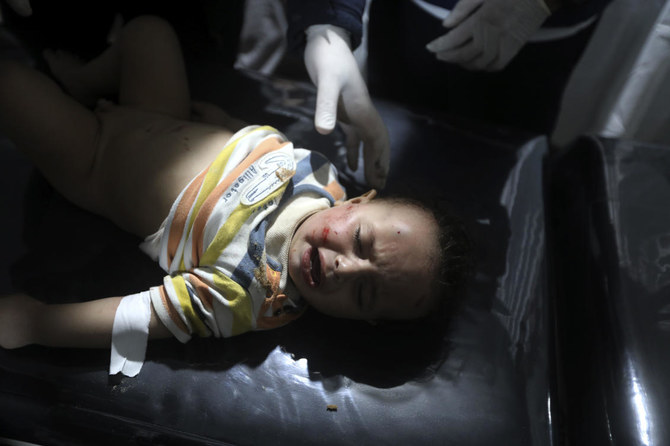
- Strike late Friday hit a residential building in the western Tel Sultan neighborhood of the city of Rafah
RAFAH, Gaza Strip: An Israeli airstrike on a house in Gaza’s southernmost city killed at least nine people, six of them children, hospital authorities said Saturday, as Israel pursued its nearly seven-month offensive in the besieged Palestinian territory.
Israel’s war against the Islamic militant group Hamas has led to a dramatic escalation of tensions in an already volatile Middle East.
The strike late Friday hit a residential building in the western Tel Sultan neighborhood of the city of Rafah, according to Gaza’s civil defense. The bodies of the six children, two women and a man were taken to Rafah’s Abu Yousef Al-Najjar hospital, the hospital’s records showed.
At the hospital, relatives cried and hugged the bodies of the children, wrapped in white shrouds, as others comforted them.
The fatalities included Abdel-Fattah Sobhi Radwan, his wife Najlaa Ahmed Aweidah and their three children, his brother-in-law Ahmed Barhoum said. Barhoum also lost his wife, Rawan Radwan, and their 5-year-old daughter Alaa.
“This is a world devoid of all human values and morals,” Barhoum told The Associated Press Saturday morning, crying as he cradled and gently rocked the body of Alaa in his arms. “They bombed a house full of displaced people, women and children. There were no martyrs but women and children.”
No victims were registered from a second overnight strike in the city.
Rafah, which lies on the border with Egypt, currently hosts more than half of Gaza’s total population of about 2.3 million people, the vast majority of whom have been displaced by fighting further north in the territory.
Despite calls for restraint from the international community, including Israel’s staunchest ally, the United States, the Israeli government has insisted for months that it intends to push a ground offensive into the city, where it says many of the remaining Hamas militants are holed up.
Such a ground operation has not materialized so far, but the Israeli military has repeatedly carried out airstrikes on and around the city.
The war was sparked by an unprecedented raid into southern Israel by Hamas and other militant groups on Oct. 7 that left about 1,200 people dead, the vast majority of them civilians, and saw about 250 people kidnapped and taken into Gaza. Israel says about 130 hostages remain in Gaza, although more than 30 have been confirmed to now be dead, either killed on Oct. 7 or having died in captivity.
The Gaza Health Ministry said Saturday the bodies of 37 people killed by Israeli strikes were brought to hospitals in Gaza over the past 24 hours. Hospitals also received 68 wounded, it said. The latest figures bring the overall Palestinian death toll from the Israel-Hamas war to at least 34,049, and the number of wounded to 76,901, the ministry said. Although the Hamas-run health authorities do not differentiate between combatants and civilians in their count, they say at least two thirds have been children and women.
The war has sent regional tensions spiraling, leading to a dramatic eruption of violence between Israel and its archenemy Iran that threatened to escalate into a full-blown war.
On Friday, both Iran and Israel played down an apparent Israeli airstrike near a major air base and nuclear site in central Iran, indicating the two sides were pulling back from what could have become an all-out conflict. Over the past several weeks, an alleged Israeli strike killed two Iranian generals at an Iranian consulate in Syria and was followed by an unprecedented Iranian missile barrage on Israel.
Israel has also faced off with the Hezbollah militant group, an Iranian proxy operating from Lebanon, with the two sides there frequently trading rocket and drone attacks across the Lebanese-Israeli border. Yemen’s Iran-backed Houthi rebels have also joined the fray, launching strikes against merchant ships in the Red Sea and the Gulf of Aden in what they say is a campaign of solidarity with the Palestinians in Gaza.
Tension has also been high in the occupied West Bank, where an Israeli military raid Friday in the Nur Shams refugee camp killed at least four Palestinians, including three militants, according to the Israeli military, Palestinian health officials and a militant group.
Palestinian health authorities said one of those killed was a 15-year-old boy shot dead by Israeli fire. The Islamic Jihad militant group confirmed the deaths of three members, including one who it said was a local military commander. The Israeli military said four Israeli soldiers were slightly wounded in the operation.
Saraya Al-Quds, the military arm of Islamic Jihad, said its fighters had engaged in heavy gunbattles Saturday morning with Israeli forces in the town of Tulkarem, adjacent to Nur Shams. No further details were immediately available. Residents in Tulkarem went went on a general strike Saturday to protest the attack on Nur Shams, with shops, restaurants and government offices all closed.
Since the Oct. 7 Hamas attack on southern Israel, more than 460 Palestinians have been killed by Israeli fire in the West Bank, Palestinian health officials say. Israel stages frequent raids into towns and cities in the volatile territory. The dead have included militants, but also stone-throwers and bystanders. Some have also been killed in attacks by Israeli settlers.
Iran FM downplays reported Israeli retaliation

- Israeli officials have made no public comment on what happened Friday
- Overnight last Saturday-Sunday Iran launched its first-ever direct attack on Israeli territory
Tehran: Iran’s foreign minister has dismissed as akin to child’s play the reported Israeli retaliation for an unprecedented Iranian strike, and said Tehran would not respond unless Iranian “interests” were targeted.
On Friday, Iran’s state media reported explosions were heard after, according to an official, small drones were successfully shot down.
Media in the United States quoted officials there as saying Israel had carried out strikes in retaliation for Tehran’s drone and missile barrage fired at Israel last weekend.
“What happened last night was no attack,” Foreign Minister Hossein Amir-Abdollahian told NBC News in a Friday interview.
“It was the flight of two or three quad-copters, which are at the level of toys that our children use in Iran.”
He added that, “As long as there is no new adventure on behalf of the Israeli regime against Iran’s interests, we will have no response.”
Friday’s explosions prompted world leaders to appeal for calm and de-escalation with fears of wider conflict against the backdrop of the war in Gaza which began on October 7.
Overnight last Saturday-Sunday Iran launched its first-ever direct attack on Israeli territory. The barrage was in response to a deadly April 1 air strike on Tehran’s consulate in Damascus, which Iran blamed on Israel.
The Israeli army said the vast majority of the more than 300 missiles and drones fired by Iran were shot down — with the help of the United States and other allies — and that the attack caused only minimal damage.
Israeli officials have made no public comment on what happened Friday, and analysts said both sides are looking to de-escalate, for now.
“If the Israeli regime intends to take another action against our interests, our next response will be immediate and to the maximum,” Amir-Abdollahian said in the interview.



